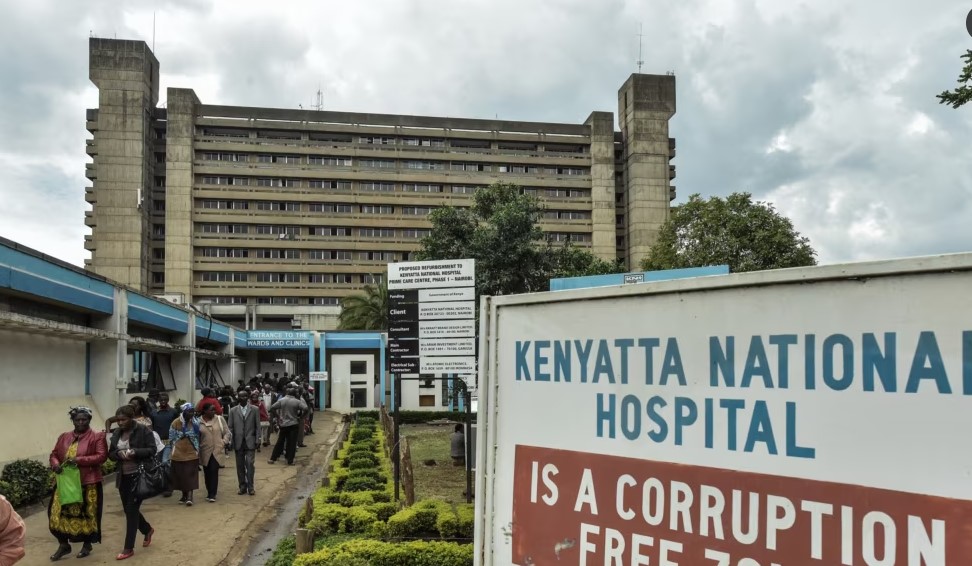KNH issues strict SHA admission guidelines to combat billing fraud

In a notice, the institution said it requires a strict three-step verification process, warning that SHA will not cover inpatient costs if admission is not properly referenced at entry.
Kenyatta National Hospital (KNH) has released a detailed admission guide for patients seeking care under the Social Health Authority (SHA), following mounting complaints over billing irregularities and system failures.
In a notice, the institution said it requires a strict three-step verification process, warning that SHA will not cover inpatient costs if admission is not properly referenced at entry.
More To Read
- SHA transition sparks tension as teachers cite lack of consultation, legal violations
- Review meeting highlights barriers to immunisation, maternal health in Turkana
- TSC sued over teachers’ migration from MINET insurance to SHA
- Court of Appeal postpones hearing on constitutionality of Health Acts
- Kenya unveils advanced bronchoscopy programme at KNH to strengthen respiratory care
- 1,567 injured police officers compensated, says Mwangangi as Senate pushes for transparency
Under the new guidelines, patients must present a valid SHA-registered national identification card and an active SHA membership.
They must also obtain a reference number from SHA and confirm the visit has been successfully initiated through a confirmation message.
In cases where the Social Health Insurance Fund (SHIF) is inactive, KNH said patients are expected to activate their status immediately, and then return to the hospital’s health information desk to acquire a new reference number.
“SHA will not cover any inpatient costs if the admission was not properly referenced at the time of entry,” KNH warned.
The directive comes amid a nationwide crackdown on fraudulent medical claims linked to SHA, with Health Cabinet Secretary Aden Duale warning that hospitals flouting new admission guidelines risk severe penalties.
Speaking before the National Assembly Health Committee on Tuesday, July 8, Duale said that all hospitals must strictly admit patients based on their licensed bed capacity. Facilities wishing to accommodate more patients must first expand their infrastructure, or risk denial of SHA claim payments.
“You can’t have three or more people share one bed, and then you go ahead to submit false claims on SHA,” Duale said.
“I have even had conversations with some major referral hospitals, such as the Kenyatta National Hospital, where I have asked that if they want to admit more patients, they should purchase more beds.”
He emphasised the importance of protecting patient dignity in public health institutions.
“There is no way some people will sleep on the floor and others on the beds, [or patients] who are total strangers and don’t even have the same disease [share a bed]. I want to assure you that this will not happen under my watch,” he said.
Duale also reiterated a warning he issued earlier on Sunday, June 29, cautioning against what he termed “unnecessary hospital admissions” driven by profit motives rather than medical need.
“The government will put an end to hospital practices where facilities coerce health workers to admit patients without any medical justification, just to increase claim values,” he said.
He noted that fraudulent activities by hospitals, healthcare workers, and even patients against the SHA Fund would attract legal action and facility closures.
“We have noted with great concern a growing trend of fraudulent activities being perpetrated by some healthcare facilities, healthcare workers, and even patients against the SHA Fund. These actions are illegal, unethical, and a direct betrayal of the trust placed in our health system,” Duale said.
Meanwhile, the Kenya Medical Practitioners and Dentists Council (KMPDC) announced that it had shut down 728 non-compliant health facilities and downgraded 301 others across various counties including Mandera, Nairobi, Wajir, Kisii and Nyamira.
“These inspections are guided by The Inspections and Licensing Rules, 2022, developed under the Medical Practitioners and Dentists Act (CAP 253). The rules provide a robust framework for regulating healthcare facilities and ensuring compliance with ethical and professional standards,” the Council said.
KMPDC said the enforcement effort was aimed at ensuring that only health facilities capable of providing safe and quality care remain operational.
Top Stories Today











































